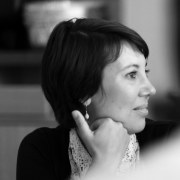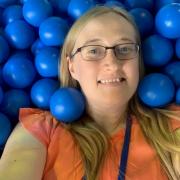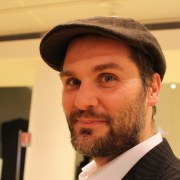Applied climate change communication: first aid kit
Warning: session taking place at the Interactive theater (and not Movie House 4 as announced in the printed programme).
Signals sent by our field’s leaders are clear: yes, we want to do our share and contribute to tackling global issues such as climate change. Quicker said than done: on the ground, many practitioners struggle and wonder why they have never seen a truly successful climate change exhibition and why it is so hard to engage audiences in conversations about the fate of the world. Let’s face it: many of our organisations stubbornly apply old paradigms to new challenges. What was initially an empowering mission can quickly turn into professional helplessness: we feel responsible, but not empowered. Often, we also feel alone.
This session is here to break isolation and start building a new first aid kit for applied climate change communication. A recent Spokes article entitled “Getting unstuck” offers a wide spectrum of theories and practical case studies on this issue, drawn from social psychology, behavioural change or values-based work. Together with its author, we will use these insights to first understand why a few practical cases went wrong, before sharing possible new tools.
If you have the time, read the "Getting unstuck" article before attending the session: part 1 & part 2.
Facilitator
Head of Museological Projects
Session speakers
Before working at Ecsite I used to be an exhibition developer. My team got it pretty wrong with a climate change exhibit then, a frustrating and painful experience. I've been proud to see our field embrace the sustainable development agenda in recent years - and also pretty desperate to see that many were making the same mistakes I had made. Convinced that we could do better, I interviewed really inspiring researchers and practitioners working at the forefront of climate change communication and plunged into a growing field of literature. This is how I wrote the "Getting unstuck" article for the Spokes magazine, which I hope can be a useful basis for the science engagement community. Let's test this in this session!
Senior Manager for Audience Research and Insight
The Victoria and Albert Museum
Marie will be sharing experiences from several projects she evaluated or developed at the Science Museum and the Natural History Museum, London. Among others she will present a possible narrative sequence tested in the Coral Reef exhibition at the NHM to tackle biodiversity loss: combining emotion, intellect and hope.
Paolo will be sharing experiences from his work as an explainer at MUSE, engaging audiences (often teenagers) with climate science. How do you convey the idea that our actions have impacts on the other end of the globe, present and future? How do you address the fear you can see in a teenager's eye as they understand the implications of climate science findings? What do you answer when visitors ask you why politicians aren't doing anything if it is as bad as you say?




